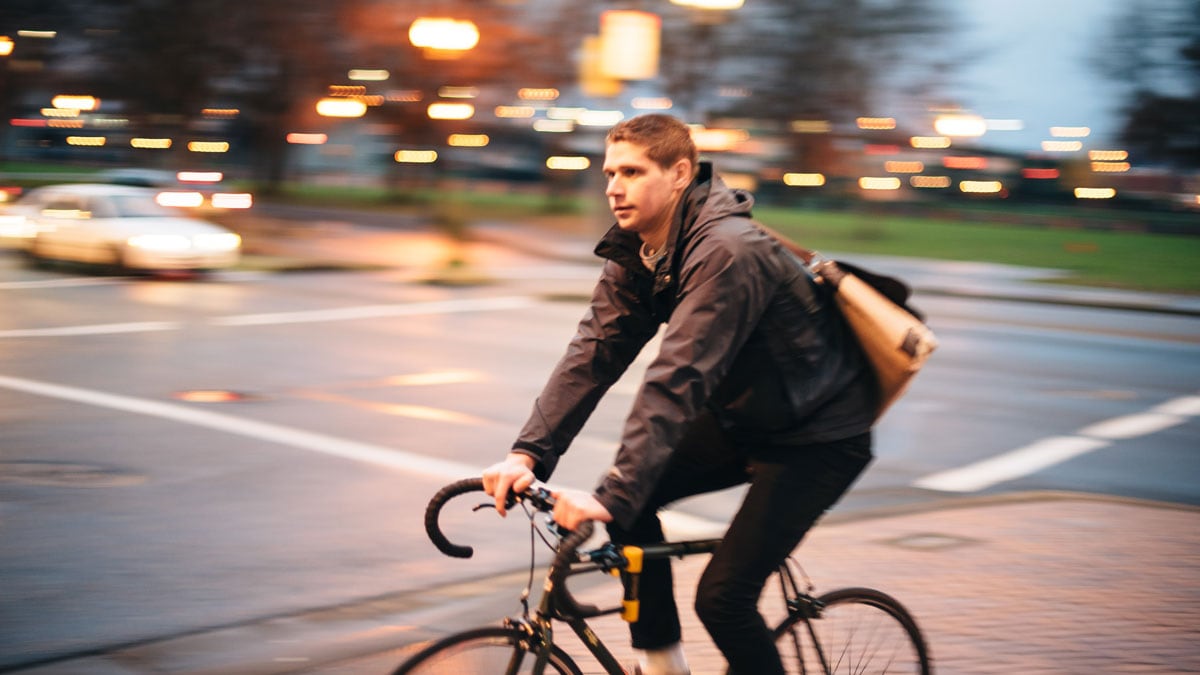On Sept. 16, Mathew Topolewski was pedaling his bicycle south on Southwest Naito Parkway when a car turning right on Taylor Street knocked him to the pavement.
"I was in the bike lane and got right-hooked," Topolewski says. "I smashed into the back of a car. He dragged me along for a little while."
Topolewski, 26 and an advertising copy writer, suffered injuries to his left side and wrist, and damage to his dark green Fuji classic. He says the driver who hit him stopped briefly but fled before identifying himself.
"He got out of the car and yelled at me to be careful," Topolewski says. "He gave me a hug, said, 'You scared me,' and ran off."
Witnesses noted the car's license plate and called the police. The officer's report should have provided a basis for the driver's insurance company to pay Topolewski's medical bills.
Except it's been 81 days since the accident, and Topolewski still doesn't have a copy of the police report—or the name of the driver who hit him.
He has company.
Last year, the Portland Police Bureau installed a new records management system. The price for a copy of a basic police report tripled from $10 to $30. The time it takes to produce that report also soared from a few weeks to four months. The delays are another in a long line of technology glitches that have afflicted the city.
"It's really a problem for people who've been injured to try to convince insurance companies what happened," says Ray Thomas, a lawyer who frequently represents cyclists and pedestrians who've been hit by motor vehicles.
Because he had no way to contact the person who'd hit him, Topolewski hired Mark Ginsberg, a personal injury lawyer.
Ginsberg, like Thomas, requests police reports regularly for clients. But he's not getting them nearly as fast as he used to, he says.
When an alleged crime such as a hit-and-run resulting in injury takes place, police officers write a report that includes a narrative and contact information for involved parties. The reports are stored electronically and are public records.
The Portland Police Bureau receives requests for about 1,600 reports a month. Records supervisor Tammi Weiss says training her three staffers on the new system took a couple of months. She says it also took time for officers to learn to use a new records template.
"It was a lot of retraining, and we haven't quite gotten to the speed that we would like," Weiss says.
There's another problem. When the bureau installed its new system, many officers also stopped using a simple paper document called a "traffic crash exchange form," which allowed motorists and cyclists to leave accident scenes with each other's insurance and contact information.
Now that doesn't always happen, and victims such as Topolewski hang in limbo. That's a big deal because serious traffic injuries and deaths are on the rise in Portland.
There are nearly 1,000 traffic accidents a month in Portland that involve either bodily injury or vehicle damage of more than $1,500, city figures show.
Ginsberg, who formerly chaired the city's bicycle advisory committee, has pushed the city to bring back the traffic crash exchange forms. Bike Portland first reported on slow police reports in April, and Ginsberg says the problem's barely gotten better.
"Oregon has an administrative rule that insurance companies must make a liability determination in 45 days," Ginsberg says. "Without a police report, they can't do that."
He says the delay in obtaining reports has real consequences: Injured Portlanders have to pay for damages somebody else caused.
PPB spokesman Sgt. Pete Simpson says the bureau is working to speed up the production of reports. "There's nobody here that doesn't recognize there's a problem," Simpson says. The city budgeted for four new positions in the records office earlier this year but has been unable to fill them, although a new recruitment process is starting soon. Simpson says many officers are again providing traffic accident exchange reports, and that the backlog for police reports is now less than three months but still far longer than the goal of 14 to 21 days. "I can't make any good excuses because there aren't any," Simpson says.
Topolewski says that on the day of the accident he was overwhelmed by the kindness of strangers. One called the police; another, who worked in a bike shop, advised him on repairs; and the responding police officer was very helpful.
"It was so Portland," Topolewski says, "but since then, I've been left in the dark."
